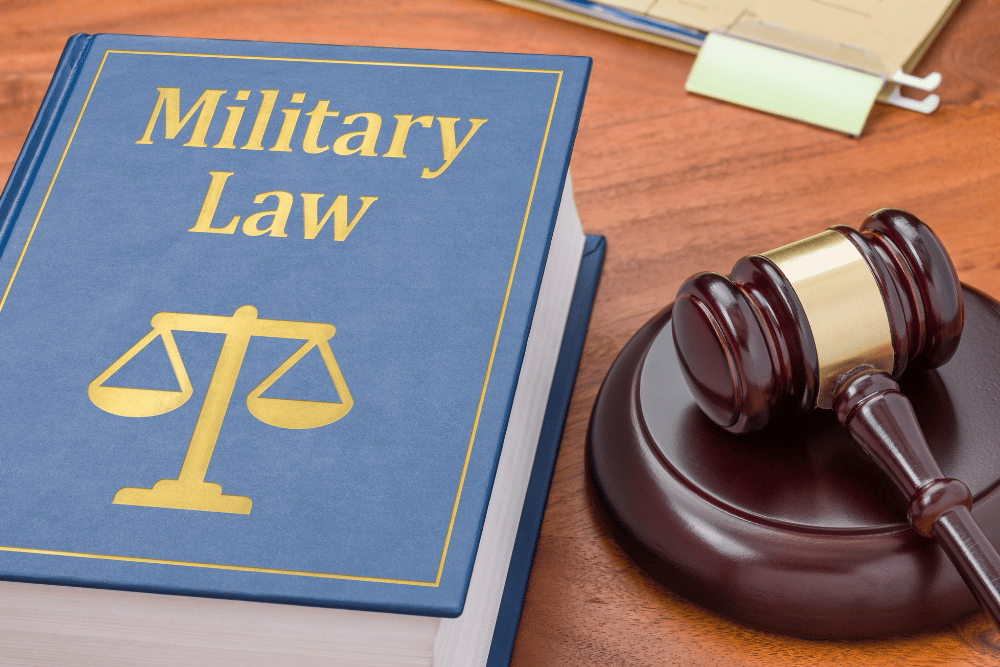What exactly is military criminal law? It refers to a set of legal provisions and regulations that govern the behavior of members of the U.S. military. That’s right – the military has its own set of laws and regulations separate from the criminal laws of the civilian population.
In Minnesota, military criminal law is governed by federal law, which applies to all military members, regardless of their branch of service or location. This guide is meant to provide an overview of military criminal law in Minnesota, including the types of crimes covered, the legal consequences of a military criminal conviction, and the rights afforded to military personnel during the criminal justice process.
Types of Military Criminal Offenses
Some of the most common military criminal offenses include:
- Obscenity. Section 1470 of Title 18 of the United States Code makes it illegal to transmit or sell obscene material knowingly or to use a means of interstate commerce to attempt to do so. This includes materials that are offensive or inappropriate for minors.
- Desertion. Desertion is a serious military crime that occurs when a military member leaves their place of duty without permission. The legal consequences of desertion depend on the circumstances of the case but can include dishonorable discharge, imprisonment, and loss of pay and benefits.
- AWOL (Absent Without Leave). AWOL is similar to desertion, but it occurs when a military member is absent from their place of duty without permission but does not leave their post. The legal consequences of AWOL depend on the circumstances of the case but can include dishonorable discharge, imprisonment, and loss of pay and benefits.
- Fraternization. Fraternization is a military crime that occurs when a military member engages in inappropriate relationships with other military members. This includes romantic relationships between officers and enlisted personnel and relationships between members of the same unit. The legal consequences of fraternization depend on the circumstances of the case but can include court-martial, dishonorable discharge, and reduction in rank.
- Failure to Obey an Order. Failure to obey an order is a military crime that occurs when a military member disobeys a lawful order from a superior officer. The legal consequences of this crime depend on the circumstances of the case but can include court-martial, dishonorable discharge, and imprisonment.
These are just a few of the acts that the military considers criminal. Most additional crimes are things you would expect because they are illegal for civilians. However, there are some little-known illegal acts that only apply to military personnel, such as cheating on your spouse.
Consequences of a Military Criminal Conviction
The consequences of a military criminal conviction can be severe and long-lasting. Depending on the nature of the crime and the circumstances of the case, a military criminal conviction can result in disciplinary action within the military, the end of your career in the Armed Forces, prison time, and more.
Some of the most common penalties include the following:
- Dishonorable discharge. A dishonorable discharge is a permanent separation from the military. It is the most severe form of discharge from the military, and it can significantly impact a person’s future employment prospects.
- Imprisonment. Just like a civilian criminal conviction, a military criminal conviction can result in a prison sentence. Such sentences can be served in a military prison or a civilian prison. The sentence length depends on the crime’s nature and circumstances.
- Loss of pay and benefits. A military criminal conviction can result in the forfeiture of pay and benefits, such as retirement and medical care.
- Reduction in rank. A military criminal conviction can reduce rank, which can significantly impact a person’s military career.
Rights of Military Personnel During the Criminal Justice Process
Whether facing charges in a military court or a civilian court, it is essential for military personnel to understand their rights during the criminal justice process.
- Right to Counsel
All military personnel has the right to counsel, either in the form of a military defense attorney or a civilian attorney. This means that they have the right to an attorney to represent them in court proceedings and to provide legal advice. If a military member cannot afford an attorney, one will be appointed for them by the government.
- Right to a Fair Trial
Military personnel is entitled to a fair trial, regardless of the type of court they are facing charges in. This includes the right to an impartial jury, the right to present evidence and cross-examine witnesses, and the right to due process of law.
- Right to Confront Witnesses
The Sixth Amendment of the U.S. Constitution guarantees the right to confront witnesses. This means that military personnel has the right to question and challenge the testimony of any witnesses against them in court. This helps to ensure that the accused receives a fair trial and that the truth is revealed.
- Protection Against Self-Incrimination
The Fifth Amendment of the U.S. Constitution provides military personnel with protection against self-incrimination, just as it does with civilians. This means that they cannot be forced to testify against themselves in court and that any statements they make cannot be used as evidence against them.
- Right to a Speedy Trial
Again, like in the civilian population, military personnel have the right to a speedy trial. This helps to ensure that the accused does not have to endure a long and stressful wait for their day in court.
- Right to Appeal
All military personnel has the right to appeal a conviction if they believe their rights were violated during the criminal justice process. This allows them to have their case reviewed by a higher court and gives them a chance to clear their name if they believe they were wrongly convicted.
 Understanding these rights is essential for military personnel facing charges, as it can help them make informed decisions and protect their rights. If you are a military member facing charges, it is essential to seek the help of a knowledgeable and experienced attorney to help you navigate the criminal justice process and defend your rights.
Understanding these rights is essential for military personnel facing charges, as it can help them make informed decisions and protect their rights. If you are a military member facing charges, it is essential to seek the help of a knowledgeable and experienced attorney to help you navigate the criminal justice process and defend your rights.
About the Author:
Christopher Keyser is an AV-Preeminent rated criminal and DWI defense attorney based in Minneapolis who is known for fighting aggressively for his clients and utilizing innovative tactics to get the most positive results. He has been featured in numerous media outlets due to the breadth and depth of his knowledge and has been named a Certified Specialist in Criminal Law by the Minnesota Bar Association. Mr. Keyser is Lead Counsel rated, and he has received recognition for his criminal law work from Avvo, Expertise, Super Lawyers, The National Trial Lawyers, and more.






